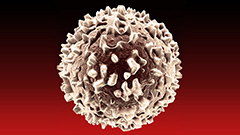Kidney Transplant Recovery
Kidney Transplantation Recovery
About 90 percent of all transplanted kidneys still function one year after a transplant. We will provide you with the Northwestern Memorial Hospital’s most recent results as listed in the Scientific Registry of Transplant Recipients (SRTR).
You also can go to the SRTR website to view results from Northwestern Memorial Hospital, as well as from all other transplant centers in the United States. This database is updated every six months.
Complications of kidney transplantation
Complications of kidney transplantation can occur early (in the first three months after your transplant) or later (beyond the three‐month post‐transplant period):
Early complications can include:
- Primary non‐function (the kidney never works)
- Delayed kidney function (the kidney doesn’t work right away)
- Bleeding that requires surgery
- Clotting of major blood vessels to the kidney
- Rejection
- Infections
Late complications can include:
- Rejection
- Infections
- Recurrent disease
- Kidney disease and other side effects of anti‐rejection medications
- Cancer
- Diabetes
- Hypertension (high blood pressure)
- Incisional hernia requiring surgery
About rejection
Types of rejection may include:
Acute rejection
You may experience at least one acute rejection episode in the first year after surgery. The immune system plays a role in acute organ rejection. White blood cells in your body recognize what is part of the body and what is not. These cells protect the body from foreign invaders. When you receive a donor kidney, your white blood cells will attempt to attack the donor kidney and destroy it.
You will take anti‐rejection medication to help prevent chronic rejection, as well as additional medication to treat acute rejection. Most of the time, acute rejection does not cause any outward symptoms, so it is necessary to monitor you using kidney biopsies.
Chronic rejection
Chronic rejection is fairly common and usually occurs more than one year after surgery. Eating a low‐fat diet, exercising, taking anti‐rejection medicines, aspirin and other medications as prescribed may help reduce the risk of developing severe chronic rejection.
Infection
Kidney transplantation patients have increased risk for infection because of the anti‐rejection medicines they must take. Anti‐rejection medicines decrease your immune system’s ability to fight an infection, so we teach you the symptoms of infection so you can identify an infection early, notify your physician and receive appropriate treatment.
Medications after kidney transplantation
The most important medications you will take after kidney transplantation are anti‐rejection medications. For a few months after kidney transplantation, your physician may reduce the amount of anti‐rejection medications you take to reduce the risk of infection.
Explore our transplant resources. These include patient education materials, support groups and more.

